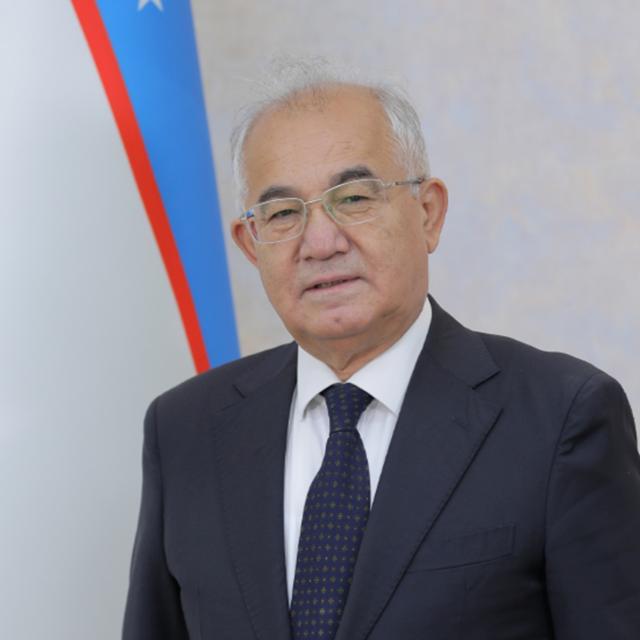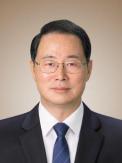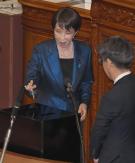
[This opinion piece was contributed by A. Kh. Saidov, Deputy of the Legislative Chamber, Oliy Majlis (Parliament) of the Republic of Uzbekistan]
SEOUL, November 26 (AJP) - The Second World Summit for Social Development, held in Doha from November 4 to 6, brought the international community back to a question that has shaped global cooperation for thirty years: how to ensure that every person can live with dignity, opportunity, and security. The world has entered a period of intense economic, demographic, technological, and environmental transition. Rising hunger, widening inequality, climate instability, and declining social trust have reshaped the development landscape. The Doha summit sought to renew global momentum around one of the core promises of the United Nations, leaving no one behind.
For Uzbekistan, which has carried out wide-ranging social and economic reforms in recent years, the summit was an important moment to present its experience and share new ideas for cooperation. President Shavkat Mirziyoyev used the platform to outline several proposals aimed at strengthening social justice and deepening collective action on sustainable development. The ideas he introduced reflect the philosophy of what Tashkent calls the "New Uzbekistan," a society centered on human dignity and committed to reform, inclusion, and openness.
A world that cannot afford complacency
The global context in which the Doha summit took place demands attention. Although progress has been made since the first Social Development Summit in Copenhagen in 1995, the world remains far from achieving its own ambitions. Poverty has been reduced by half since the mid-1990s, and life expectancy has increased significantly, yet the pace of improvement has slowed. According to United Nations data, more than 800 million people still live in extreme poverty and over 40 percent of the global population has no access to social protection. Hunger is rising in many regions, driven not by a shortage of food across the world but by conflict, economic shocks, and policy failures. Climate change continues to intensify droughts, floods, and food insecurity, placing the greatest strain on the poorest communities.
At the same time, rapid technological change is creating new inequalities. Digital platforms offer access to information and opportunity, but they also accelerate polarization, disinformation, and disruption in labor markets. Millions of workers face uncertainty as automation and artificial intelligence alter traditional industries. These trends reinforce a clear reality: economic growth on its own is no longer enough to reduce structural inequality.
This is the backdrop against which the Doha Political Declaration was adopted. The declaration reaffirms that social development must be at the center of global stability and peace, and calls for expanded social protection, stronger education systems, fair working conditions, and urgent climate action. It also stresses the need to reform the global financial architecture so that developing countries burdened by debt can secure the resources necessary for poverty reduction and sustainable development.
Uzbekistan's reform agenda at the center
President Mirziyoyev's participation in Doha highlighted how Uzbekistan has sought to respond to many of the same pressures affecting countries worldwide. Over the past eight years, the country has launched one of the most comprehensive reform programs in its recent history, aiming to modernize public institutions, liberalize the economy, expand opportunities for citizens, and raise living standards.
Poverty reduction has been a major priority. In 2017, Uzbekistan introduced targeted social registers to identify vulnerable families and ensure the delivery of assistance. These registers, known as the "Iron Register," the "Women's Register," the "Youth Register," and the "Mercy Register," have become essential tools for directing support to those most in need. As a result, guaranteed assistance now reaches more than 2.3 million low-income families, elderly individuals, and persons with disabilities, four times more than eight years ago. The poverty rate, once near 35 percent, has fallen to 6.6 percent.
Human capital has been another major focus. Preschool enrollment has risen from 27 percent to 78 percent, allowing more women to pursue education and employment. Over the past five years, more than 800,000 citizens have completed professional training and secured higher-income jobs. Uzbekistan has updated its labor code, adopted new employment and trade union laws, and amended its Constitution to enshrine the principle of the country as a social state.
Migration, which is a reality for millions of Uzbek citizens who seek work abroad, has also become a key area of reform. A unified system now provides language and skills training before departure, legal and material support for citizens overseas, and reintegration programs for returning workers. The goal is to ensure that migration becomes a safe and empowering choice, not a source of exploitation.
Environmental policy, especially regarding the Aral Sea region, has taken on global significance. The drying of the Aral Sea has long been recognized as one of the world's worst ecological disasters. Uzbekistan has responded by planting more than 2 million hectares of salt-tolerant vegetation on the exposed seabed, with plans to cover up to 80 percent of the area by 2030. Working with regional and international partners, the country is improving water management, expanding climate-resilient agriculture, and promoting renewable energy.
These reforms form the domestic foundation for the proposals President Mirziyoyev presented in Doha.
Five proposals for shared prosperity
Uzbekistan's initiatives at the summit were framed around the idea that global stability depends on global social justice, and that developing countries must play a central role in advancing that agenda. The President introduced five proposals.
The first was the establishment of a Global Fund for Social Justice. With over one billion people still living in poverty and developing countries requiring an estimated $4 trillion to meet the Sustainable Development Goals, there is an urgent need for a financial mechanism that improves access to development resources. Uzbekistan proposed hosting a high-level conference in Khiva in 2026 to explore how such a fund could operate, bringing together governments, international financial institutions, and donor organizations.
The second proposal focused on employment and decent work. With the global unemployment rate at around 5 percent and technology reshaping labor markets, the President called for a Global Initiative on Social Responsibility and Decent Work. He pointed to Uzbekistan's own experience, noting that the country has attracted nearly $130 billion in investment over the past eight years, doubled the size of its economy, and created millions of jobs.
The third initiative emphasized education. Uzbekistan, now a member of the Global Alliance Against Hunger and Poverty, proposed hosting a summit under the Alliance with education as the main theme. Illiteracy, the President noted, costs the global economy an estimated $1.4 trillion each year. Strengthening vocational education is especially important for preparing young people for the green and digital economy.
The fourth proposal addressed international migration. With more than 300 million people working abroad worldwide, the President called for an International Forum on the Social and Legal Protection of Migrants and their Families, along with a Global Program on migrant rights. Uzbekistan's own reforms in this field were presented as a potential model for other developing countries.
The fifth initiative focused on the Aral Sea region, which has been designated by the UN as a Zone of Environmental Innovation and Technology. Uzbekistan urged deeper cooperation to develop a socio-economic model for regions that face severe climate stress.
Toward a renewed global consensus
The Doha summit made clear that achieving social justice in an era of global turbulence requires more than restating existing commitments. It demands new partnerships, new financial tools, and renewed solidarity. Uzbekistan's proposals reflect the view that emerging economies not only face shared global challenges but also have practical ideas to contribute.
In recent years, Uzbekistan has positioned itself as a more open and internationally engaged country, hosting global forums, aligning national strategies with the Sustainable Development Goals, and working closely with UN institutions. Its message in Doha, that development must be rooted in human dignity and collective responsibility, is consistent with that broader direction.
As the world searches for a new consensus on development, Uzbekistan is seeking not only to transform itself but also to help shape the global conversation. The path to social justice, as articulated by its leadership, requires cooperation, inclusiveness, and investment in human potential. These principles remain as relevant today as they were in Copenhagen thirty years ago.
Copyright ⓒ Aju Press All rights reserved.




